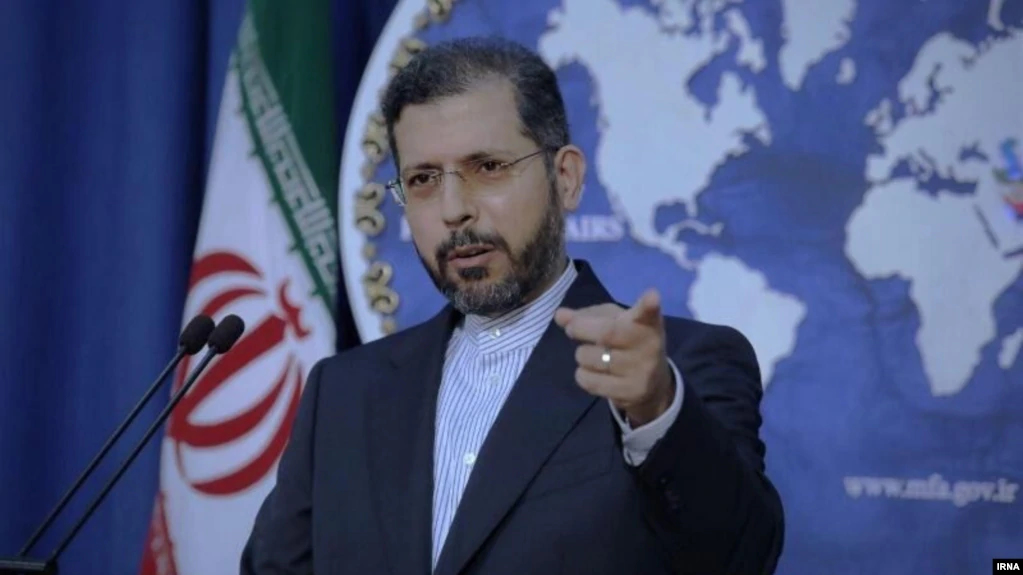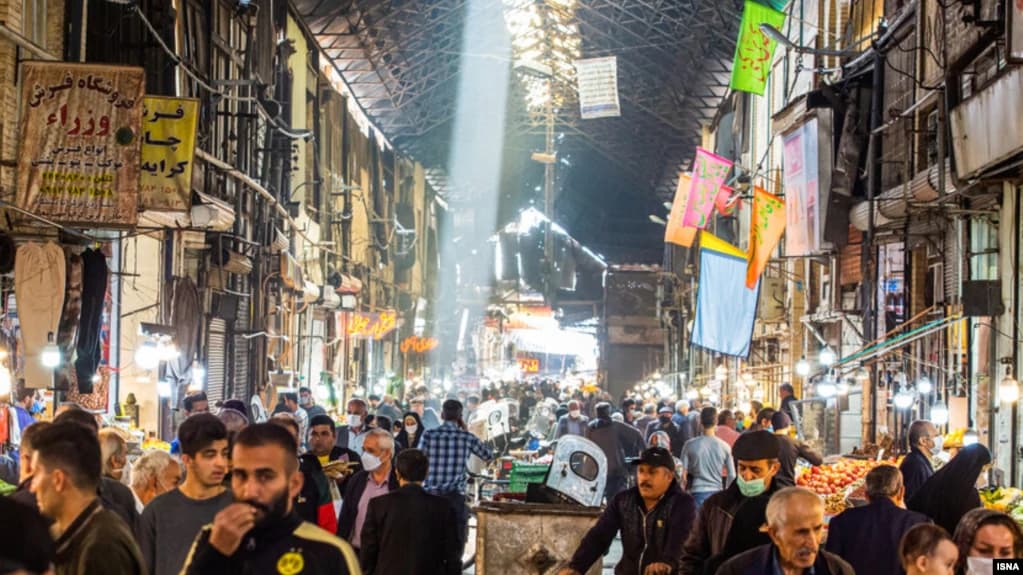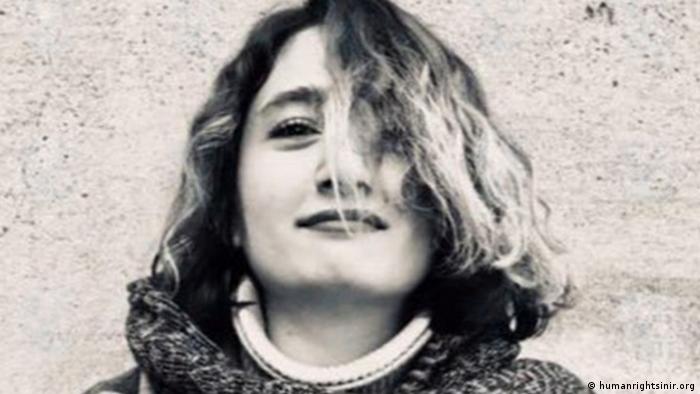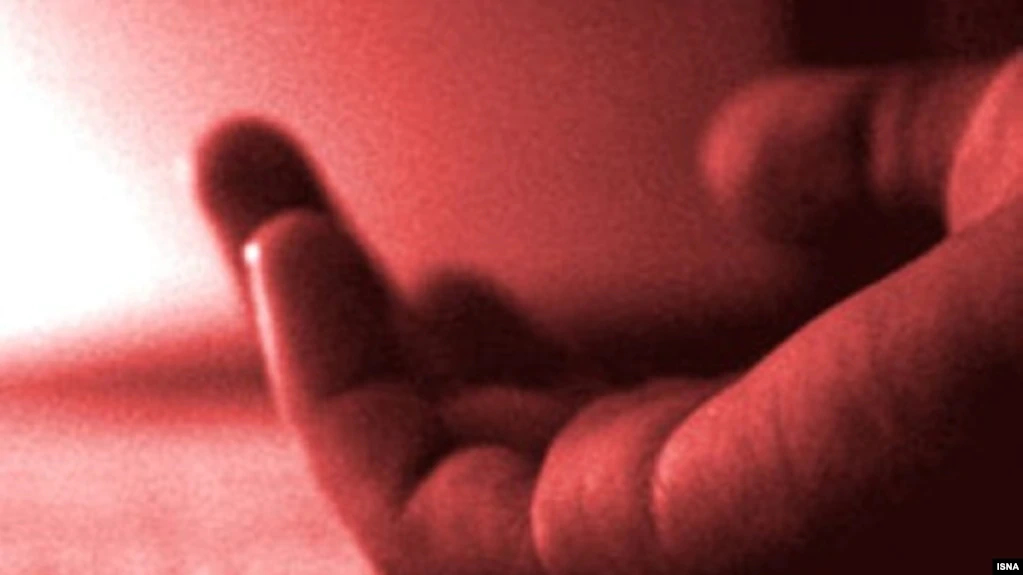
Do Not Let Workers Run Out of Patience!
Workers’ conditions in Iran are deteriorating. While the poverty line has reached 10 million tomans, the minimum wage of workers is still 3 million tomans. With a 7 million tomans gap, workers cannot buy meat, rice, beans, etc. Moreover, due to the coronavirus crisis, the increase in the cost of healthcare and skyrocketing inflation, workers’ living conditions have worsened. The editorial of Arman Melli, penned by a labor activist, warns that if these conditions continue, it will turn into an irreversible crisis.
It is possible that society might move on as it is, and workers might be able to provide for themselves or can even tolerate the foreseeable economic pressures next year. But these incidents are a recipe for disaster.
The government and employers might not be willing to follow the law when it comes to paying wages determined by the Supreme Labor Council. But if the issue of workers and their livelihoods is not addressed properly, it will reach a critical point. When we get there and pass the critical point, then no one can resolve these issues. We must know that the time will come when all these problems will turn into a crisis, and then the majority of workers will lose their patience. And that day, we will not be happy with the outcome.
Officials cannot meet workers’ demands today. Above all, when it comes to paying workers and their belated wages, they flout the laws.
Parliament’s Hasty Move Has Complicated Reviving the JCPOA
The editorial of Setareh Sobh criticizes the Iranian Parliament for acting hastily by ratifying legislation with regard to Iran’s nuclear activities, which makes it more difficult to reach an agreement with Biden’s administration.
Germany, France and England issued a joint statement expressing their concern over Iran producing uranium, calling it a breach of the nuclear deal (JCPOA). Increasing the uranium stockpile and producing uranium metal will not create any changes in the West’s behavior or make America return to the JCPOA or lift sanctions. But this will result in even tougher moves against Iran.
Overall, Iran has taken some hasty decisions with regard to the JCPOA. The Parliament’s ratification of legislation concerning the nuclear issue is an example. It is wrong for lawmakers to think that if America doesn’t fulfil its JCPOA obligations and doesn’t lift sanctions, Iran should exit the NPT and stop implementing the Additional Protocol. It was a hasty decision.
Biden will take more time because he has not been able to deal with all the issues regarding US domestic and foreign policy as yet. Furthermore, there are deep differences between Iran and America. Iran has said it will not negotiate over the JCPOA and America must lift sanctions. But it is not that easy. Today, it has become clear that the US demands are different from 2015.
Biden’s team has been weighing the situation for months to determine a new policy for resuming nuclear talks with Iran. That is because many things have changed since 2015. What is evident is that the new US administration’s policy concerning the JCPOA will be different from Obama’s administration. Iran too must bring its policies up to date.
On the other hand, the JCPOA is not limited to Iran and America; it is related to the whole world. Currently, Iran can no longer tolerate the existing situation, and America cannot remain indifferent to resolving the Iran issue. In this regard, a secret diplomacy between Iran and America will be initiated to resolve the issue.
Chanting “Death” to Rouhani Is no Accident, nor Is Eliminating Khomeini’s Name
In footage released on 22 Bahman – the anniversary of the revolution in Iran – a group of cyclists were seen in the city of Isfahan who were carrying the flags of Iran and were chanting “Death to Rouhani” – the Iranian president. The editorial of Iran newspaper called this no accident.
Today, one of the questions that Iranian political thinkers should ask is: how come that on the day commemorating the anniversary of the revolution, they chanted “Death” to the president and the resolution issued at the end of the ceremony didn’t mention the name of the founder of the revolution?
Such measures are not accidental and should not be reduced to a simple incident, particularly given the fact that this has not been unprecedented in recent years. Just as before, these behaviors are attributed to some rogue individuals, urging that there was no plan behind such measures, and they were spontaneous.
Such provocative measures, however, are certainly organized and premeditated. We still remember that the head of the Parliament’s national security commission officially threatened the president with “execution” a few months ago. Other examples can be seen on Iran’s state television or by Friday mass prayer leaders.
Undoubtedly, such behaviors incite a part of society and indirectly encourage people to take similar measures to what we recently saw on the anniversary of the revolution. Even if we think that the cyclists who chanted “Death to Rouhani” were rogue elements, they were incited by certain platforms and officials, and that was certainly organized.
Just as not mentioning the name of Khomeini in the final resolution of the anniversary ceremony is not a simple mistake or accidental, such incidents indicate that there are those who are willing to take extreme measures in the name of the revolution.
Have We Reached the Era of Reconstruction?
The editorial of Aftab Yazd goes over Iranian President Hassan Rouhani’s assessment of his government’s performance during the last eight years.
In his speech on the anniversary of the revolution in Iran, Hassan Rouhani, who is spending his last months in office, divided his two terms of his presidency as such: “I divide eight years of the Government of Hope and Prudence into three parts; the period of stability, growth and progress from 2013 to 2017; the period of imposed war during the three years from 2018 to 2020; and then the last six months which will be the era of reconstruction.”
This is how those who have been leading the government for eight years perceive the situation. They hold that after what had happened during Ahmadinejad’s government in domestic and foreign policy, the Government of Hope could bring stability and growth to the country from 2013 to 2017.
This seems to be a fair assessment. With Rouhani taking office, the nuclear deal was negotiated and signed, and Iran found a lifeline in the fields of economy and politics. With regard to the economy, Iran experienced strong economic growth after a long time and the rate of inflation became single digit. Economic conditions were not ideal, but seemed to move towards improvement. In foreign policy too, Iran had a better relationship with the developed countries.
The period of war – as Rouhani calls it – started when Donald Trump took office. It was then that Rouhani became like a father of a family who has lost his job, his income, and the entire family sees the deterioration of economic and financial conditions. Of course, Rouhani is not fully honest here, as he doesn’t mention the ignorance of his managers which added to the burdens.
The last part that Rouhani talks about is the era of reconstruction. What Rouhani has said in this regard is ambiguous as it depends on Iran’s foreign policy. The recent positions taken in Tehran and Washington show that we are not going to see any changes soon. There is the possibility that the White House might minimally lift the sanctions, as the US media has reported that this might take place in the near future. But we should wait and see if such small steps can lead to the era of reconstruction. Only time will tell.

Iran Warns That it Will Stop Implementing the IAEA Additional Protocol Soon

Iranian officials have once again threatened to reduce their commitments regarding the country’s nuclear program. The most recent warning came from Foreign Ministry spokesman Saeed Khatibzadeh who said Iran will stop implementing the IAEA Additional Protocol by February 21 if the other JCPOA partner countries refuse to uphold their commitments.
However, in a press conference on February 15, Khatibzadeh stressed that stopping the implementation of the IAEA Additional Protocol does not mean “stopping all the supervision” of the IAEA on Iran’s nuclear program, but only includes supervision beyond the NPT safeguards. The Foreign Ministry spokesman also criticized the new US administration for pursuing the measures of its predecessor with regard to Iran’s nuclear program and continuing the “maximum pressure” campaign against the country. Saeed Khatibzadeh pointed out if the United States returns to its obligations concerning the JCPOA, “all these measures [taken by Iran] will be reversible.”
This Foreign Ministry official also underscored once again that Iran’s nuclear program is peaceful. Khatibzadeh made these comments in reaction to the unprecedented words of Intelligence Minister Mahmoud Alavi who recently stated Iran would not rule out pursuing nuclear weapons if it was pushed by other countries. Moreover, Khatibzadeh referred to the controversial issue of Iran producing uranium metal and said that his country produces uranium metal merely to acquire advanced nuclear fuel.
In 2003, the Director General of the IAEA and Mahmoud Salehi signed the Additional Protocol to Iran’s NPT safeguards agreement, permitting IAEA inspectors to inspect Iran’s nuclear facilities whenever necessary without prior notice.
Warnings on ‘Grave’ Danger of UK COVID-19 Variant in Iran

The head of public relations in Iran’s Health Ministry has announced that 17 patients with the UK coronavirus variant have been identified in the country. Kianoush Jahanpour raised the alarm on the “grave” danger of the rapid dissemination of this mutated virus in Iran.
Jahanpour added that seven of these patients are in Qazvin but he did not mention where the other 10 reside. Iranian Health Ministry authorities usually refuse to announce the statistics for each province separately. Not to mention that the accuracy of the coronavirus tally in this country has always been under question to the point that even Iran’s Medical Council officials say the real death toll of this disease is three to four times higher than what is officially announced.
Meanwhile, Health Minister Saeed Namaki also expressed his concerns over the UK mutated virus in Iran, saying it is more transmissible and kills more people than the previous one: “We will be having a tough March ahead of us this year.”
Furthermore, Hamid Souri who heads the COVID-19 rapid response team said it is a matter of serious concern that some officials and people do not take controlling this pandemic seriously. He pointed to the early reopening of businesses, the holding of ceremonies and the resumption of travel as signs of normalizing the current conditions by officials and people. Souri stressed that some institutions prioritize the issue of people’s livelihoods over their health — which is not acceptable at all.
Iran’s top authorities, such as President Rouhani, had previously stated that due to the country’s dire economic conditions, there can be no long-term closure of businesses to prevent the coronavirus spread. “The easiest way is to close down everything,” said Rouhani, “But then people will take to the streets due to hunger, poverty and unemployment.”
Student Activists: Longtime Targets of the Iranian Government’s Repression Machine

The Iranian establishment’s repression machine has been targeting students for decades, putting them behind bars for the slightest criticism or protest. Now on the 42nd anniversary of the revolution, once again a number of students have been convicted and imprisoned.
One of them is Marjan Eshaghi, a student of political sciences at Tehran University, whose charge is participation in the November 2019 protests – or in the words of Judge Salavati “assembly and collusion against national security.” This conviction will send her to prison for five years as was recently confirmed by Iran’s Appeal Court. Eshaghi was arrested in November 2019 by IRGC agents and transferred to the IRGC’s detention center at Tehran’s Evin prison. She was released temporarily after 18 days on bail.
Another Tehran University student, Parissa Rafiei, who has been jailed for a year after taking part in student protests, is now facing a new sentence while still in prison. Her new charge is “disseminating propaganda against the government” and her new sentence: 15 months of imprisonment, in addition to the one year which she is serving at present. Rafiei had written about the conditions of her detention center and the way female prisoners were treated.
Soha Mortezaei is another student of political sciences who has been deprived of studying for her PhD. She staged a solitary sit-in at the Tehran University campus with a placard which said she was deprived of education because of “discrimination and injustice” – an act for which she paid dearly: a six-year imprisonment sentence on charges of “assembly and collusion against national security.” This sentence was later confirmed by the Tehran Appeal Court.
Many students in Iran have been arrested or faced prison charges for alleged offences which had nothing to do with what they really did: exercise their right to peacefully protest.
60 Suicides in Dishmok Due to Severe Poverty Over 3 Years

After the suicide of an 11-year-old girl in the city of Dishmok in Kohgiluyeh and Boyer-Ahmad province, Salman Bina, a member of the city council, said that there have been 60 cases of suicide in that area during the past three to four years.
Salman Bina added that the city is now known as the city of suicide and self-arson, urging that most people who attempted suicide in this area were women, and in 35 percent of the cases they lost their lives.
The 11-year-old girl committed suicide by hanging herself. She was studying in sixth grade of primary school; her family was in a terrible financial situation; her father had no income.
According to Bina, Dishmok has 23,000 residents who are struggling with issues like poverty, unemployment, lack of drinking water, lack of schools and dormitories for girls.
He added that the residents here are deprived of the basics of life. Dishmok’s women have to walk several kilometers to get water, and when they return, they are too tired to do anything else.
The member of Dishmok City Council asserted that most of the young girls who commit suicide in this area have to quit studying and are unemployed.
Bina slammed the city officials for not knowing how to politely deal with people and for disrespecting them, adding that the officials do not want to take any steps to resolve the people’s issues.
During the last month, there have been three cases of suicide in this area – two men and an 11-year-old girl.
Suicide among Iranian teens and children has increased in recent years due to worsening economic conditions and the spread of the poverty in the country. According to official statistics, the percentage of children and teens committing suicide in Iran is more than 7 percent.
